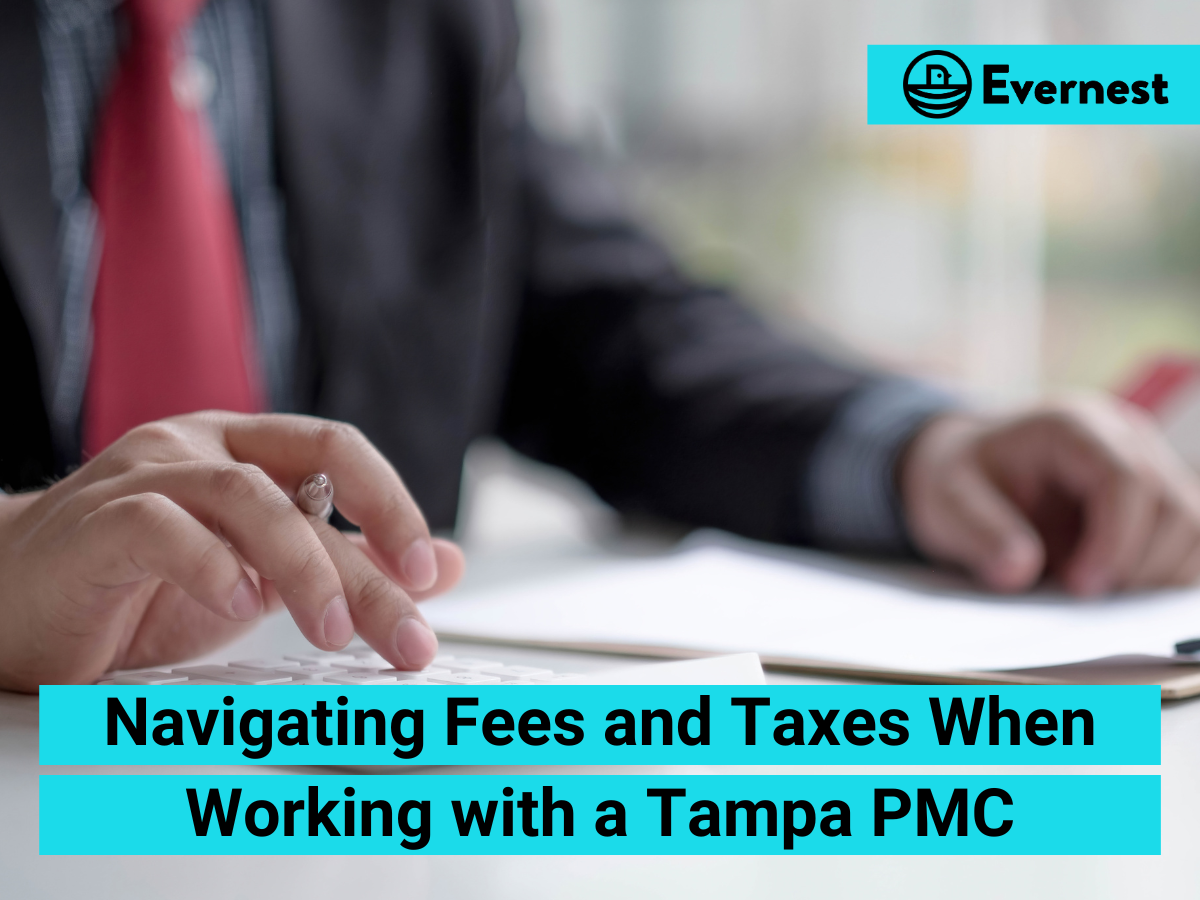Tampa landlords must be prepared for the financial responsibilities of managing rental properties. Taxes and property management fees are among the factors to consider when navigating the financial aspects of working with a property management company.
This article aims to provide landlords with a comprehensive guide on how to handle fees and taxes effectively, ensuring a smooth financial journey.
Let’s jump in!
Understanding Property Management Fees
Property management fees can vary depending on the property management company you work with. Some common types of property management fees include:
Leasing Fee: This fee is charged when a new resident is secured for your rental property.
Management Fee: Typically a percentage of the monthly rent, this fee covers the day-to-day management tasks performed by the property management company.
Maintenance Fee: Charged whenever maintenance or repair work is conducted on your property.
It is essential to determine your total management costs by considering all these fees and any additional charges imposed by the property management company. Keeping track of your expenses allows you to gain a clear understanding of your financial obligations.
Note: When considering a few different companies, it might be a good idea to run a comprehensive price comparison.
Tax Deductibility of Management Fees
Landlords can deduct property management fees as business expenses on their tax returns, reducing their overall taxable income. However, it is vital to consult with a tax professional to ensure compliance with IRS guidelines and maximize your deductions.
Property-Related Taxes
The main factors in property-related taxation are:
Property Taxes: These taxes are assessed by the local government and play a significant role in your financial planning. Understanding the tax rates and payment schedules will help you budget effectively.
Income Tax Implications: Rental income is subject to federal income tax and, in some cases, state income tax. Knowing the tax brackets and applicable deductions can help minimize your tax liability.
Tax Benefits of Rental Properties: Rental properties offer several tax benefits, such as deductions for depreciation and mortgage interest. These benefits can significantly impact your overall tax situation.
Staying informed about the tax implications of owning rental property is crucial to ensure compliance and make the most of available deductions.
Tracking and Reporting Expenses
Keeping detailed records of your income and expenses makes tax preparation easier and helps you monitor the profitability of your rental properties. Utilizing accounting software tailored for landlords can streamline this process, making it more efficient and accurate.
Tax Deductions and Credits
Landlords are eligible for tax deductions and credits, which can significantly impact their bottom line. Some property-related tax deductions include:
Interest and Mortgage Expenses: The interest paid on your rental property's mortgage is tax-deductible, reducing your taxable income.
Property Repairs and Maintenance: Expenses related to repairs, maintenance, and improvements made to your rental property can be deducted.
Depreciation: Landlords can deduct a portion of the property's value each year as depreciation, acknowledging the wear and tear the property undergoes.
Additionally, the Section 1031 Exchange provides an opportunity for landlords to defer capital gains taxes when exchanging one investment property for another. Understanding these deductions and credits can significantly impact your overall tax liability and financial planning.
Working with Tax Professionals: Hiring a Tax Professional
A tax professional can help navigate the intricacies of tax regulations, identify deductions, and ensure compliance with IRS guidelines. Their expertise can save you time, reduce tax liabilities, and provide peace of mind.
Local Tax Regulations and Variations
It is important to remember that tax regulations can vary from state to state and even from city to city. Familiarizing yourself with local tax regulations specific to Tampa, Florida, is essential. Staying informed about any changes or updates to local tax laws ensures your financial preparedness and compliance.
Deadlines and Compliance: Tax Filing Deadlines
Missing tax filing deadlines can result in penalties and unnecessary financial strain. Whether it be quarterly estimated tax payments or annual returns, staying organized and meeting deadlines ensures smooth tax compliance.
Conclusion, Seeking Professional Guidance, and Additional Resources
In conclusion, navigating fees and taxes when working with a Tampa property management company requires financial preparedness and a commitment to staying informed.
Seeking professional guidance from tax professionals who specialize in real estate investment is highly recommended. Their expertise can provide valuable insights and help landlords make informed financial decisions.
For further information and resources regarding taxes and rental property management, consult reputable tax and property management websites, attend local workshops or seminars, and reach out to professional organizations that cater to landlords.
By remaining proactive and knowledgeable about fees and taxes, landlords can confidently work with property management companies in Tampa while ensuring their financial success.
Looking for a Tampa property management company to help out? Contact our local team today!


